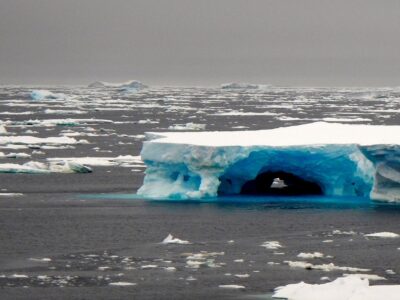
On Sept. 24, the Earth Institute welcomed Professor Dan Rabinowitz, head of the Porter School of Environmental Studies at Tel Aviv University, to Columbia University’s Morningside campus for a talk on “Climate Change and the Fifth Environmental Paradigm.” With an introduction by Steve Cohen, executive director of the Earth Institute, Rabinowitz led the audience through a discussion of climate change through the lens of what he calls “the fifth environmental paradigm,” or rather, “The Climate of Things”—a perspective that engages critically with the social sciences. The talk revolved around two overall questions: One, can social and political institutions ensure that human civilization survives the impending global crisis of climate change? And secondly, were the original assumptions about society and human nature ever valid?
To begin, Rabinowitz spoke about the four existing paradigms that have governed environmental issues—all of which use knowledge from multiple fields, such as science, philosophy, policy and law. The first paradigm, which emerged at the start of the 20th century, stemmed from a want to defend nature from industrialization, leading to the creation of parks and other forms of preservation.
The second uses the science of ecology to reduce health and safety threats (think Rachel Carson’s Silent Spring), which led to the establishment of environmental ministries and protection agencies worldwide.
The third paradigm considers social, political and economic conditions, and led to the realization that some groups pay the price more than others when it comes to environmental damage.
And the fourth environmental paradigm is inspired by the climate crisis, admitting that environmental issues are no longer peripheral and that they represent a risk to regional and national security.
Rabinowitz emphasized that the evidence of climate change is compelling and its challenges can no longer be left unsolved, as he went through some examples of how social scientists have dealt with this complex issue. Climate science has made immense progress, including efforts such as the Intergovernmental Panel on Climate Change. The UN panel’s most recent report featured, for the first time, a chapter on social and political aspects of climate change, including its link to poverty.
The decision to integrate a social analysis is certainly significant, argued Rabinowitz, because climate impacts are beyond the comprehension of one scope of expertise. In fact, climate change is systemic in nature, which poses an urgent challenge for social scientists. When something is viewed as flexible, change can be accommodated fairly easily, but this is not the case for climate. Climate is a structural component of our existence, and may be influenced in ways we don’t understand. The possibility that something so constant might be altered is disorienting—as disorienting as if we were told a year would no longer contain 12 months, or if law and order in the streets all of a sudden ceased to be.
Rabinowitz’ final point was that “the fifth environmental paradigm” suggests a new trajectory; the magnitude of climate change warrants a reexamination of modernist social science. Things need to be put in a new light. Rather than using other disciplines to guide knowledge of the universe, this paradigm uses the climate crisis to reexamine the validity of those other disciplines. As life-changing as “The Internet of Things,” “The Climate of Things” suggests that if climate change is going to dominate society’s agenda as a systemic, existential force, it is time to begin to think about how to reformulate our way of seeing.
Dan Rabinowitz has a B.A. from King’s College London in human environmental studies, and a master of philosophy and Ph.D. in social anthropology, both from Cambridge University. His interests range from climate change and the environment, to ethnicity and citizenship, to globalization and transnationalism. He is currently a professor of sociology and anthropology at Tel Aviv University, and head of the Porter School of Environmental Studies.



